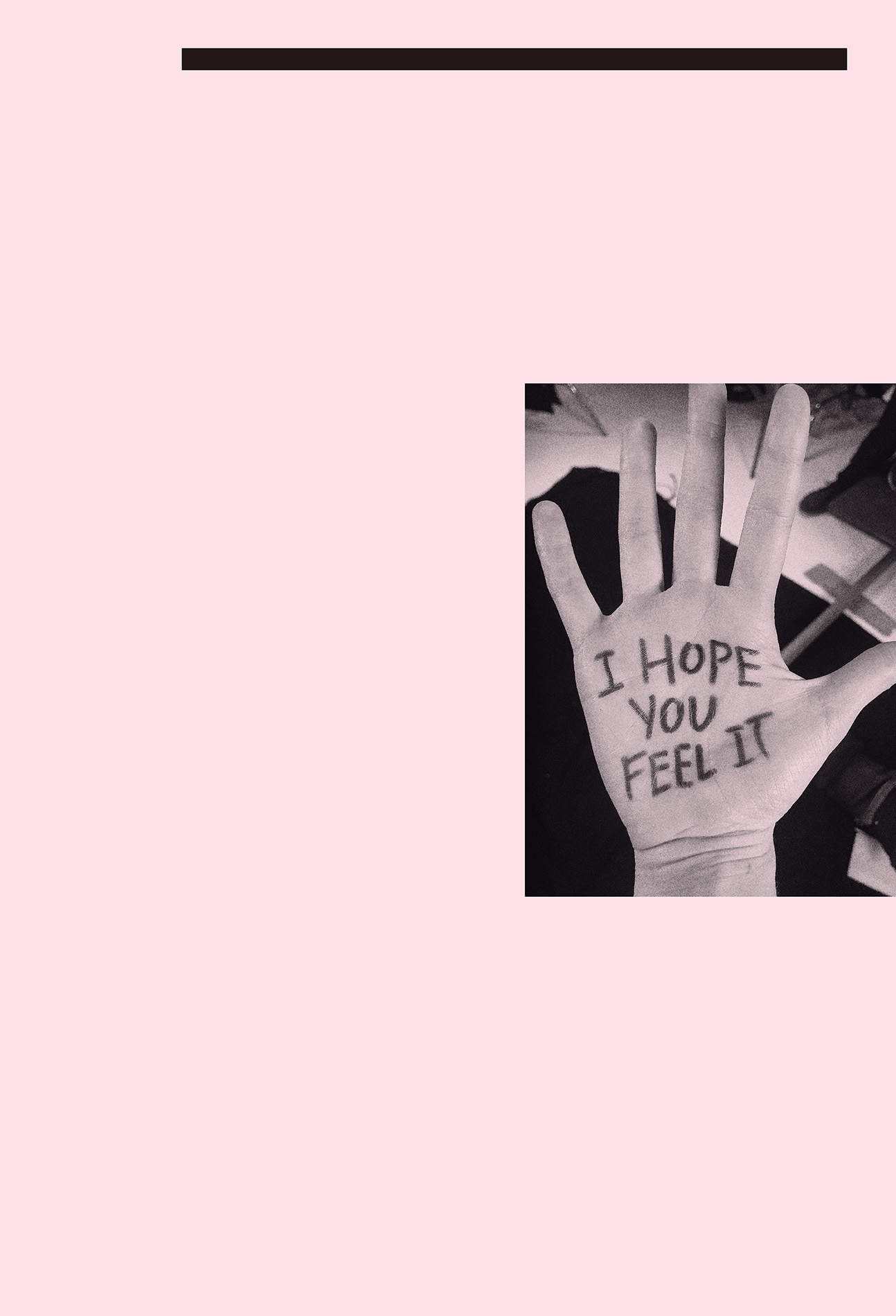
195
“YOU OUGHTA KNOW”:
ANATOMY
OF AN
OVATION
OF AN
OVATION
Starting during the first Boston performance of Jagged Little Pill, audiences began to stand up and applaud after Lauren Patten and the ensemble performed “You Oughta Know.” And then it...just kept happening. We spoke to the cast and creative team about the power of that moment.
ALANIS MORISSETTE: That song is such permission. Women weren’t allowed to feel angry, depressed, and fearful. We’re not allowed to feel fear. It is divine permission to feel vulnerable, feel rejected. To not be like, “Oh, no, it was a totally mutual decision.” No, it wasn’t, I was dumped. It wasn’t mutual.
DIANE PAULUS: I’ll never forget the first preview at A.R.T. We hit “You Oughta Know” and the audience stood up and the show completely stopped. And we were all dying. Like, what is happening? It was uncontrollable to the point that the next day we went back into rehearsal and I said to my stage manager, “All right, let’s change the lighting cue.” I said, “I don’t want it to feel like we’re holding for applause.” So we changed some of the lighting cues and we went into the preview the next night, and it happened again. There was literally nothing we could do. And for the ten weeks we played at A.R.T., that happened every single performance.
LAUREN PATTEN: It was definitely a surprise. I also didn’t expect it to continue for Broadway. You know, I remember going in for the first Broadway preview and thinking, “Okay, that might’ve just been a Cambridge thing” because it’s so rare and so kind of ludicrous for it to happen.
PAULUS: Going into Broadway, it was really coaching Lauren like a sports coach. I think there was one early matinee where the audience didn’t stand, and I was so relieved. I was like, “Okay, it’s happened.” Just for her to know that it’s not about the standing ovation. That’s not the point of the song. You’ve got to live in the not knowing. How do we keep the show on the edge and dare not to know about what’s going to happen at any given show?
PATTEN: There’ve been audiences for the Broadway run who haven’t stood, and it doesn’t feel like a let down or a disappointment because every time there’s a huge wave of energy from the audience. I think the moment unlocks something in people.
SIDI LARBI CHERKAOUI: I think it’s the circumstance of stillness to total explosion, mixed with an iconic song.
DIABLO CODY: I knew that Jo would definitely be the comic relief in this show, which makes it all the more surprising and explosive when she’s the one who has that volcanic, cathartic moment of rage.
ELIZABETH STANLEY: “You Oughta Know” is such a moment. And the audience is having such a moment. It feels
like this hot, red flame. Like the lights are red. And you’re like, “What’s on fire?”
LARBI: You’re clapping for the song’s power, its twenty-five year history. You’re clapping for Lauren’s ability to convey this song, but also to finally release herself as Jo. That connects us again, which is a paradox. All of us saying screw the world makes us connect to the world. That’s what’s so beautiful about it. It’s really interesting how our disconnect reconnects us.
TOM KITT: I’ve always come from the place where I want to feel like the standing ovation is earned. And what I feel with “You Oughta Know” is that people aren’t just going, all right, I might as well stand. People stand right away. Whether you’re clapping loudly at your seat whooping or you’re standing, I feel like there is a huge catharsis. People who are
feeling what Lauren is doing in that moment, what the show has been saying. Those moments happen when something speaks to you.
GLEN BALLARD: It’s the culmination of the whole show. That moment’s pretty transcendent for me.
PATTEN: I think we put so much energy out from the stage that it gives people permission to return it to us. So whether people are standing or not, it’s always a really beautiful moment of communion to me.